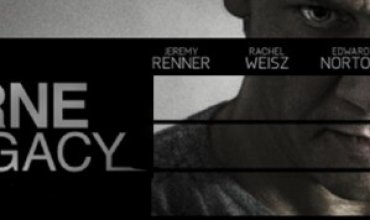In an attempt to solve the problem of overpopulation and scarcity of resources, Norwegian scientists invent a way to shrink human beings to just 5 inches tall. Paul Safranek (Matt Damon) still lives in his childhood home, and has given up on his dream of becoming a surgeon to work the fulfilling, albeit low-paying, job of occupational therapist. Struggling with his inability to provide his wife Audrey (Kristen Wiig) with the material goods he believes she deserves, and plagued by debt, Paul and Audrey decide to Downsize their life, get Small, and massively multiply their capital to live the life everybody dreams of; manicured mansions, diamond jewellery, and the pretentious lifestyle of opulent luxury. However, Paul quickly discovers that the Small world privileges comes at a price that someone less fortunate has to pay.
Downsizing, directed by Alexander Payne (The Descendants, About Schmidt), is a work of speculative fiction, a thought experiment that investigates the potential realities behind the solutions to the world’s crises. It explores the possible abuses of a technology intended to save the human race, the class and race relations that continue to pervade human discoveries, and how the Western upper/middle class benefit from new technologies at the expense of poorer, underdeveloped nations.
The meticulous scientific procedures, the film’s time lapses, and its irregular, somewhat anti-climactic, plot culminate in an air of realism. The film is well-scripted, well-cast, and doesn’t try to stylize its technology by minimalizing it. The technology, its roll-out across the world, and the economic and political side effects could be real, and make the opening of the film engaging and believable. The audience immersion in the Small world is practically flawless. The film is filled with beautiful, intricate details that one might miss, like Downsized children using old coke lids as toboggans. However, some audiences may find it a little slow at points. People expecting dramatic sci-fi special effects and light-hearted comedy will be disappointed – this film delves deeply into the political and economic problems that plague our society today, which, rendered anew in the Small world, are suddenly made more poignant. How can we expect to save the human race when many of us will not even save the person next door?
Downsizing is satirically funny, its comedy bitter-sweet, and somewhat undermining of deeper meaning, in the face of human extinction. The trailer perhaps doesn’t do justice to some of the film’s best moments, because it has been carefully edited to preserve the intriguing plot twist.
Where the film falls down is its unnecessary romantic entanglement, and its representation of Ngoc Lan Tran (Hong Chau), a Vietnamese refugee-turned-poor-housecleaner. An ex-dissident, Ngoc Lan is jailed by the Vietnamese government and made Small as punishment, before being smuggled into America via a television box, a journey which costs her the lower half of one leg. She is the majority of the comedy, even when she is not intended as such, but perhaps the onus is on the audience, not the director/screenwriter, to no longer find broken English hilarious. Ngoc Lan, whose character starts out as endearing, outspoken, compassionate and strong, quickly dissolves into some crude Oriental stereotype. Hong Chau, who speaks perfect English with very little accent, is, like many Asian-American actors, forced to take the only role Hollywood will provide for her. She’s also Thai, not Vietnamese, and is not an amputee, but I guess there are no Vietnamese amputee actors in the entire world, right? Kristen Wiig’s character is equally as disappointing, barely contributing to the film before being quickly written out in a sexist emotional cloud. Despite this, I still recommend people go and see it.
I rate this film 7/10.
Downsizing is in Australian cinemas from Boxing Day.


